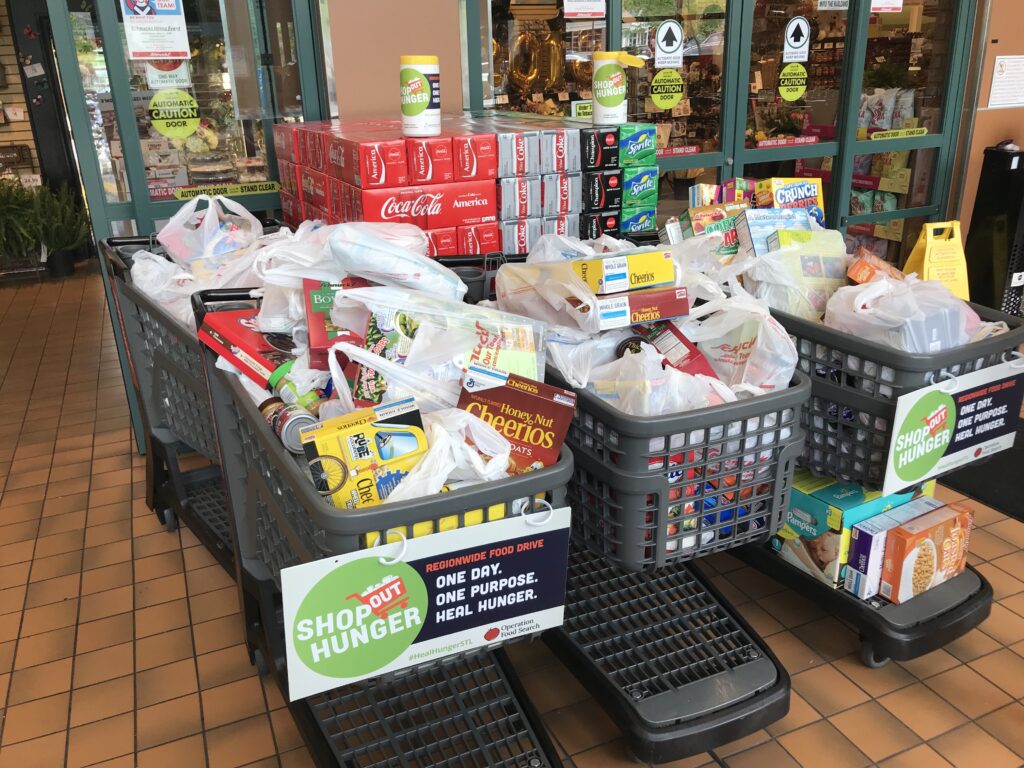The 10 most-needed food drive donations
Food drives are a crucial resource in the fight against hunger. Many food banks, pantries and shelters rely on donations to help meet the immediate need for those experiencing food insecurity – but not all gifts are created equal.
We put together this list of the ten best food drive donations you should consider next time you donate. These are the items that can help food-insecure individuals and families maintain or, in many situations, improve their overall health.
What should you donate?
- Light Tuna and Salmon (canned and/or pouches)
These items are nutrient-dense, high in protein, and versatile in many dishes.
- Canned chicken soup, chili, stews with meat and beans (a complete meal in a can)
Soups and stews can be fast and nourishing meals. Be mindful of sodium levels and look for items with protein and vegetables.
- Canned fruit (in natural juices)
These shelf-stable items are a great way to ensure healthy fruit consumption and accessibility all year. Fruits canned in natural juices ensure there are no unnecessary sugars.
- Diced tomatoes, tomato paste, canned spaghetti sauces (low sodium)
Pasta is widely loved and very filling and affordable. However, ways to season the pasta or provide some additional nutritional value to the dish are often forgotten. That’s why it’s great to donate healthy sauces, as well!
- Canned beans (low sodium)
Low-sodium canned beans are a versatile, healthy, and highly-nutritious ingredient. They can instantly turn a light meal into something hearty and satiating.
- Instant brown rice, whole wheat pasta
Rice and pasta can go a long way. They last a long time, are easy to cook, and are often readily available. The downside is that they tend to lack good nutritional value, so opt for whole wheat versions when possible.
- Boxed meal kits
Boxed meal kits contain a bit of everything. They tend to be easy to cook, requiring little time or creativity to make a fully-contained and satisfying meal.
- Canned vegetables
Vegetables are the cornerstone of any nutritious diet, yet they’re among the least-donated items. Getting plenty of vegetables to maintain a healthy lifestyle is essential, and canned vegetables are ideal for ensuring accessibility when fresh produce isn’t a reasonable option. Low-sodium versions are preferable.
- Dried spices
Everyone wants to enjoy the taste of their food. Items that turn basic ingredients into a meal full of flavor are often overlooked. Additionally, some spices have remarkable medicinal qualities, from relieving joint pain to serving as natural antibiotics.
- Toiletries – deodorant, toothbrushes & toothpaste
These aren’t food items, but they’re essential to a healthy lifestyle and often expensive for lower-income families. When food-insecure people make sacrifices, it’s often at the expense of food, hygiene, and preventative medicine.
The bottom line from this list is the need for items that are nutrient-dense, versatile, shelf-stable, and flavorful.
Additional donation considerations
Here are some helpful things to consider when purchasing items to donate at your next food drive.
Please, no glass containers – Often, glass containers break in transport from the donation site to the distribution and the household.
Please, no Ramen noodles – These small, convenient, and flavorful packages offer little nutritional value whatsoever and can worsen the unseen effects of food insecurity.
Please consider pop-top cans when available – It may be hard to believe, but not everyone has a can opener. Additionally, can openers may be hard to use for those with arthritis and other conditions. Pop-top cans can help mitigate those difficulties.
This certainly is not an exhaustive list of items; however, it is a good guideline for the donations that help us heal the hurt of hunger throughout St. Louis.
